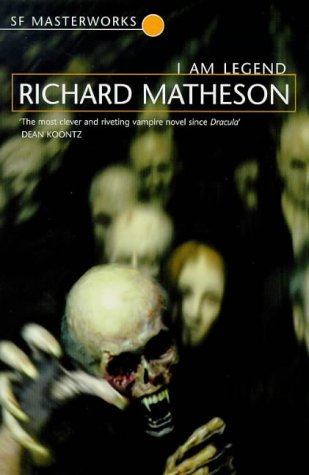John Harker
Definitely doesn't make things up as he goes along.
November =
 +
+






Prime crotch said:Couldn't find the right edition but yeah this works


John Harker said:November =



smarties00 said:
It actually gets much worse on that angle, too.Uncle said:I just finished House of Chains by Steven Erikson. I have the next book in the series as well, but I think I'll take a break from the series, becauseit really got on my nerves that the dude can't kill any of his characters, so that they would actually stay dead. It's getting a bit ridiculous now.




A few of the characters start off as real bitches, but it does get better. I found it all really satisfying in the end.echoshifting said:-Ship of Magic, Robin Hobb - Just terrible, melodramatic to the point where it is virtually unreadable. Reading this has been a depressing experience since I used to read fantasy trilogies almost exclusively in middle school/high school...are they all this bad? Sigh...probably. I adored the Assassin Trilogy; I am going to have to revisit it to see if it's just this book or if my memory has made me fonder of her writing than it deserves.
snaildog said:A few of the characters start off as real bitches, but it does get better. I found it all really satisfying in the end.

The Take Out Bandit said:A bit pissed that I found this is part of a series of books, but oh well. In for a penny, in for a pound.


echoshifting said:-Ship of Magic, Robin Hobb - Just terrible, melodramatic to the point where it is virtually unreadable. Reading this has been a depressing experience since I used to read fantasy trilogies almost exclusively in middle school/high school...are they all this bad? Sigh...probably. I adored the Assassin Trilogy; I am going to have to revisit it to see if it's just this book or if my memory has made me fonder of her writing than it deserves.
Read all three books as they are fantastic and end up being better than the original trilogy.
-Master and Commander, Patrick O'Brian - I've rarely been this divided about a book; I love and hate it equally. The core adventure story is great...the sense of ship battles unrivaled in literature, the feeling of being at sea spot-on. On the other hand, it assumes the reader has a vast knowledge of 19th century naval terms; if you really want to understand every word you need to have Wikipedia constantly at the ready while you read this.What you really have to do is just embrace the fact that you aren't meant to understand everything; that you are meant to go along with the flow. I tend to look up a word here and there when it keeps popping up but otherwise just kinda breeze by them. If it weren't for the authenticity of the experience, the adventure aspect wouldn't be so fun to read, so you have to put up with it. Overall, I'm enjoying it, but it will probably be awhile before I attempt the next book in the series.



FnordChan said:I've never read any Norman Mailer. Suggestions on where to start?
FnordChan
FnordChan said:Also, for the book I just finished:

The Fourth Protocol by Frederick Forsyth - After two decades and the collapse of the Soviet Union, this spy thriller is perhaps a bit dated but still a solid read. In Moscow, an elderly Kim Philby proposes a plan to the General Secretary to have Hard Left factions take control of the UK Labour party, defeat Thatcher and the Convservatives, and then kick the US out of the UK and make it a Soviet friendly state. A stretch, sure, but he's got an extra kick to the plan that could just push Labour over the top. This results in a dense procedural, where the good guys try to foil this plan through meticulous detective work, described by Forsyth in exacting detail. This results in a solid (or, perhaps, dense) read that, while enjoyable, isn't quite up to the level of, say, Le Carre. Still, I dug it and will add more Forsyth to my reading list.
FnordChan
Eric P said:i actually just started a spy fiction kick a year or two ago but it's kind of shriveled once it led me to the awesome procedural books of Michael Dibdin.
my dad was really into them, but since his job was intelligence of the soviet variety in the 80s, i imagine it would be like me bringing home a boook about a daring, heroic VoIP networker admin/project coordinator only everything would be wrong.
Gruco said:It actually gets much worse on that angle, too.


QVT said:Blood Meridian - It has no quotes just like all of McCarthys work. It makes it better to read with.




Fallout-NL said:[

The first two were awesome, the last 2 were interesting, quite unlike other books I've read.
The novel begins in the year 2019, when the SETI program, at the Arecibo Observatory, picks up radio broadcasts of music from the vicinity of Alpha Centauri. The first expedition to Rakhat, the world that is sending the music, is organized by the Jesuit order.
Only one of the crew, Father Emilio Sandoz, survives to return to Earth, and he is damaged physically and psychologically. The story is told in framed flashback, with chapters alternating between the story of the expedition and the story of Sandoz' interrogation by the Jesuit order's inquest, set up in 2059 to find the truth. Sandoz' return has sparked great controversy not just because the Jesuits sent the mission independent of United Nations oversight, but also because the mission ended disastrously. Contact with the UN mission, which sent Sandoz back to Earth alone in the Jesuit ship, has since been lost.
